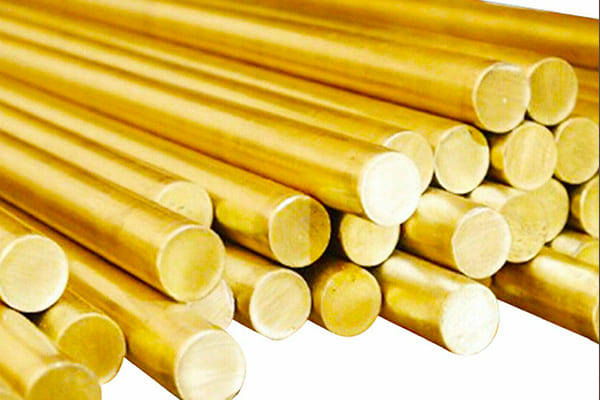Metals are crucial to modern manufacturing, providing strength, durability, and functionality for numerous products, from cars to buildings. Understanding the characteristics of different metals is vital for engineers, designers, and manufacturers, as the choice of metal impacts product performance, cost, and longevity.
Aluminum
Aluminum is one of the most abundant and versatile metals on Earth. Its combination of low weight and high strength makes it an incredibly useful material for a wide range of applications.
Properties of Aluminum
- Lightweight: Aluminum has a density of about 2.7 g/cm³, which is roughly one-third that of steel. This low weight is a significant advantage in industries where reducing mass is critical.
- Corrosion Resistance: When exposed to air, aluminum forms a thin, tough layer of aluminum oxide on its surface. This protective layer prevents the metal from rusting and corroding, making it ideal for outdoor and high-moisture environments.
- High Strength-to-Weight Ratio: Despite being lightweight, aluminum can be alloyed to achieve impressive strength. This excellent strength-to-weight ratio allows it to be used in applications requiring both durability and minimal weight.
- Ductility and Malleability: Aluminum is highly ductile, meaning it can be drawn into wires, and malleable, meaning it can be hammered or pressed into various shapes without breaking.
Common Applications
The unique properties of aluminum lead to its widespread use in several key sectors:
- Aerospace: The aerospace industry relies heavily on aluminum alloys to construct aircraft frames and components. Its lightweight nature helps improve fuel efficiency and performance.
- Automotive: Car manufacturers use aluminum for body panels, engine blocks, and wheels to reduce vehicle weight, which enhances fuel economy and handling.
- Packaging: Aluminum is widely used for beverage cans and food packaging due to its corrosion resistance, light weight, and recyclability.
Steel
Steel, an alloy of iron and carbon, is arguably the most important engineering and construction material in the world. Its versatility and strength have made it a cornerstone of industrial development.
Properties of Steel
- High Strength: Steel is renowned for its exceptional tensile strength, allowing it to withstand immense force without breaking. Different alloying elements can be added to create various grades of steel with specific strength characteristics.
- Durability: Steel is incredibly durable and resistant to wear and tear, which contributes to the long lifespan of products and structures made from it.
- Versatility: By adjusting the carbon content and adding other elements like manganese, chromium, or nickel, the properties of steel can be tailored for different needs. This results in a wide array of steel types, including carbon steel, alloy steel, and stainless steel.
- Cost-Effectiveness: Compared to many other metals with similar strength properties, steel is relatively inexpensive to produce, making it an economical choice for large-scale projects.
Common Applications
Steel’s strength and reliability make it essential for:
- Construction: From skyscrapers and bridges to residential homes, steel provides the structural framework for modern buildings. It’s used for beams, columns, and reinforcing bars in concrete.
- Automotive: The automotive industry uses steel for vehicle frames, chassis, and body panels, where its strength is critical for safety and structural integrity.
- Infrastructure: Steel is vital for building railways, pipelines, and power transmission towers, forming the backbone of public infrastructure.
Copper
Copper has been used by humans for thousands of years, prized for its distinctive reddish-brown color and excellent physical properties. It remains a crucial material in modern technology and industry.
Properties of Copper
- Excellent Electrical Conductivity: Copper is second only to silver in its ability to conduct electricity. This property makes it the standard material for electrical wiring.
- High Thermal Conductivity: It is also an excellent conductor of heat, which is why it’s frequently used in applications that require efficient heat transfer.
- Corrosion Resistance: Copper is resistant to corrosion from water and many chemicals, ensuring its longevity in various environments.
- Ductility: Copper is extremely ductile, allowing it to be easily drawn into thin wires without losing its strength.
Common Applications
Copper’s conductive and corrosion-resistant properties are leveraged in many areas:
- Electrical Wiring: The vast majority of electrical wiring in homes, businesses, and electronics is made from copper due to its superior conductivity and reliability.
- Plumbing: Copper pipes and fittings are widely used in plumbing systems because they are durable, corrosion-resistant, and can handle both hot and cold water.
- Heat Exchangers: Copper’s high thermal conductivity makes it an ideal material for radiators, air conditioners, and other heat exchange systems.
Titanium
Titanium is a modern metal known for its incredible strength and light weight. Though more expensive to produce than steel or aluminum, its superior properties make it indispensable in high-performance applications.
Properties of Titanium
- Exceptional Strength-to-Weight Ratio: Titanium has the highest strength-to-weight ratio of any metallic element. It is as strong as some steels but 45% lighter.
- Outstanding Corrosion Resistance: Titanium is virtually immune to corrosion from seawater, chlorine, and many acids, making it extremely durable in harsh environments.
- High Melting Point: With a melting point of over 3,000°F (1,668°C), titanium can withstand very high temperatures.
- Biocompatibility: Titanium is non-toxic and not rejected by the human body, a property known as biocompatibility.
Common Applications
The premium properties of titanium make it the material of choice for:
- Aerospace: It is used for critical components in aircraft engines, airframes, and spacecraft where high strength and temperature resistance are essential.
- Medical Implants: Due to its biocompatibility and strength, titanium is used for hip and knee replacements, dental implants, and bone screws.
- Chemical Processing: Its corrosion resistance makes it ideal for pipes, valves, and vessels used in the chemical processing industry.
Nickel
Nickel is a silvery-white metal that is highly valued for its ability to enhance the properties of other metals when used as an alloying agent.
Properties of Nickel
- Corrosion and Heat Resistance: Nickel provides excellent resistance to corrosion, oxidation, and high temperatures. This makes it a critical component in alloys designed for harsh conditions.
- Strength and Toughness: When added to other metals, nickel significantly increases their strength and toughness, even at very low and high temperatures.
- Magnetic Properties: Nickel is one of the few elements that is magnetic at room temperature.
- Alloying Ability: It alloys well with many other metals, including iron, chromium, and copper, to create superalloys with superior properties.
Common Applications
Nickel is most often found in alloys that power advanced industries:
- Alloys: Nickel is a key ingredient in stainless steel and other superalloys (like Inconel and Monel) used in demanding environments like jet engines and chemical reactors. Many everyday objects, like metal railings in Utah, might use nickel-containing alloys for their durability.
- Batteries: Nickel is a vital component in rechargeable batteries, including nickel-cadmium (NiCd) and nickel-metal hydride (NiMH) batteries, as well as the lithium-ion batteries used in electric vehicles.
- Chemical Industry: Nickel is used as a catalyst in various chemical reactions and for equipment that must withstand corrosive chemicals.
Conclusion
The manufacturing world relies on metals like aluminum, steel, copper, titanium, and nickel, each with unique properties for specific uses, from airplane frames to electrical wiring. Knowing these materials helps manufacturers innovate safer, more efficient, and durable products.



